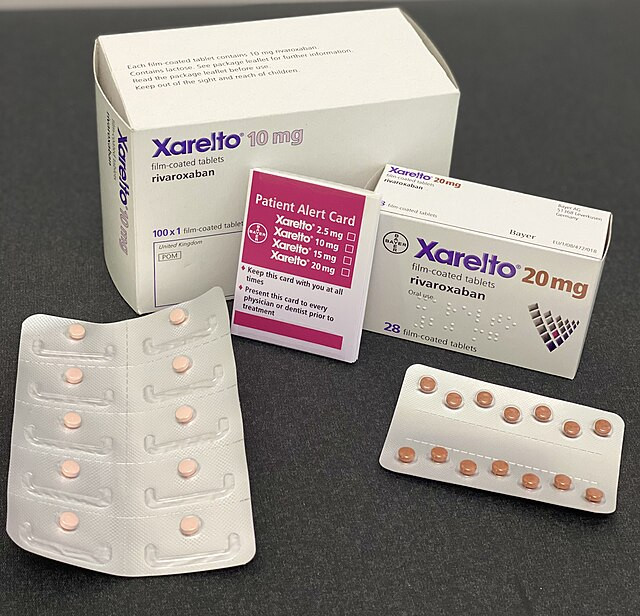The Biden administration announced a significant breakthrough on Thursday, revealing that it had successfully negotiated lower prices for 10 of the costliest prescription drugs covered by Medicare. This unprecedented move marks the first time the federal government has directly negotiated drug prices, a development made possible by the Inflation Reduction Act passed in 2022. The negotiated prices, which will take effect in 2026, are expected to provide substantial financial relief to millions of older Americans who have struggled with the high cost of their medications.
Among the drugs affected are some of the most widely prescribed treatments for conditions such as diabetes, heart disease, cancer, and arthritis. The new prices include reductions like a drop in the cost of Eliquis, a blood thinner from Bristol Myers Squibb and Pfizer, from $521 to $231 for a 30-day supply, and a decrease in the price of Imbruvica, a blood cancer medication from AbbVie and Johnson & Johnson, from $14,934 to $9,319. These cuts represent discounts ranging from 38% to 79% compared to current prices.
"This is a historic moment," said Neera Tanden, White House domestic policy adviser, during a call with reporters. "Millions of seniors and others on Medicare will soon see their drug costs go down on some of the most common and expensive drugs that treat heart disease, cancer, diabetes, blood costs and more."
Medicare, which provides health insurance to over 65 million people in the U.S., has long been unable to negotiate directly with drugmakers-a limitation that has contributed to soaring drug prices. The Inflation Reduction Act changed that by granting Medicare the authority to negotiate prices for a select number of high-cost drugs, a power that the administration has now exercised for the first time.
The potential impact of these negotiations is significant. According to administration officials, the new prices could save Medicare enrollees $1.5 billion in out-of-pocket costs in the first year alone. This figure is in addition to the savings generated by other provisions of the Inflation Reduction Act, such as the $35 monthly cap on insulin costs and an annual cap on out-of-pocket prescription drug expenses. Overall, the Medicare program is projected to save $6 billion in the first year of these negotiations.
Health and Human Services Secretary Xavier Becerra described the negotiations as "intense," noting that both sides had to make concessions to reach a mutually beneficial agreement. "It took both sides to reach a good deal," Becerra said, acknowledging the complex and challenging nature of the discussions.
However, the pharmaceutical industry has expressed reservations about the outcome. Steve Ubl, president and CEO of the Pharmaceutical Research and Manufacturers of America, criticized the administration's approach, suggesting that the negotiations were more about political posturing than actual cost reduction. "There are no assurances patients will see lower out-of-pocket costs," Ubl said in a statement, reflecting concerns that the negotiated prices may not translate into immediate savings for consumers.
Despite these criticisms, the Biden administration is highlighting the negotiations as a major victory for American seniors and a key achievement of the current administration. Both President Joe Biden and Vice President Kamala Harris are expected to tout the savings from the program as part of their broader effort to address economic issues ahead of the next presidential election.
The announcement of these price reductions comes at a crucial time, as the cost of healthcare remains a top concern for many voters. A study published in JAMA found that more than half of older adults are very concerned about the costs of medical care and prescription drugs, a sentiment that has been echoed in various polls. Nearly 9 in 10 adults aged 65 and older report taking at least one prescription drug, according to research from the Kaiser Family Foundation.
The savings from these negotiations are just the beginning. In 2027, Medicare will implement negotiated prices for an additional 15 drugs, followed by 15 more in 2028, and 20 more each year thereafter. These ongoing negotiations could lead to even greater savings for seniors in the years to come.
However, the future of these price reductions is not guaranteed. The pharmaceutical industry has filed lawsuits challenging the legality of the Inflation Reduction Act's provisions, seeking to block the law's implementation. So far, these legal challenges have been unsuccessful, but the ongoing litigation adds an element of uncertainty to the long-term prospects of the program.
"It's a big deal that they reached an agreement with all 10 drugmakers," said Stacie Dusetzina, a health policy professor at Vanderbilt University, in an email. "No one opted to leave Medicare and Medicaid in protest over their negotiated prices. That's a success!"






